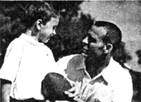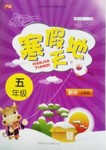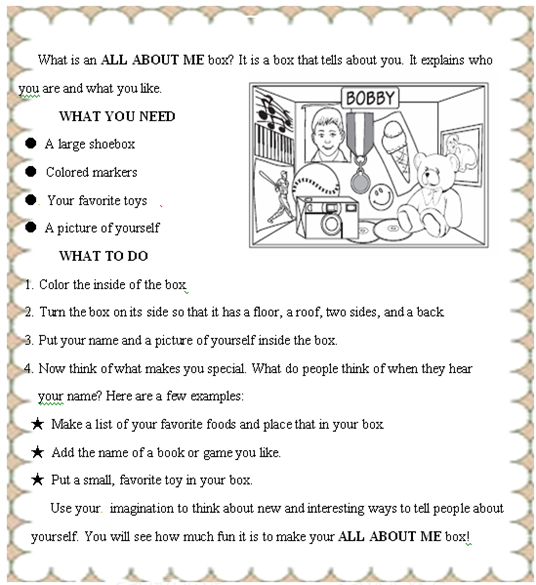题目内容
Each nation has many volunteers(志愿者) who help to take care of others. They books to the people in hospitals or homes for the aged. Sometimes they just visit them and play games with them or listen to their .
Other young volunteers go and work in the homes of people who are sick or . They paint, clean up, their houses or do their shopping.
For boys who no longer have , there is an organization called Big Brothers. College students and other men take these boys to baseball games or fishing places and help them to get to know things that boys learn from their fathers.
Each city has a number of clubs boys and girls can go to play games or learn crafts (工艺). Some of these clubs organize short trips to the mountains, beaches, or other places of interest . Most of these clubs use high school and college students as volunteers because they are young enough to the names of boys and girls.
Volunteers believe that the happiest people in the world are those who help to i happiness to others.

Other young volunteers go and work in the homes of people who are sick or . They paint, clean up, their houses or do their shopping.
For boys who no longer have , there is an organization called Big Brothers. College students and other men take these boys to baseball games or fishing places and help them to get to know things that boys learn from their fathers.
Each city has a number of clubs boys and girls can go to play games or learn crafts (工艺). Some of these clubs organize short trips to the mountains, beaches, or other places of interest . Most of these clubs use high school and college students as volunteers because they are young enough to the names of boys and girls.
Volunteers believe that the happiest people in the world are those who help to i happiness to others.

| 小题1: |
|
| 小题2: |
|
| 小题3: |
|
| 小题4: |
|
| 小题5: |
|
| 小题6: |
|
| 小题7: |
|
| 小题8: |
|
| 小题9: |
|
| 小题10: |
|
小题1:B
小题2:D
小题3:C
小题4:B
小题5:C
小题6:A
小题7:D
小题8:A
小题9:C
小题10:B
试题分析:每个国家都有志愿者,志愿者是帮助照顾那些需要帮助的人如老人或者病人。任何人都可以做志愿者,帮助有需要的人做些力所能及的事。帮助别人,才能快乐自己。
小题1:考查动词辨析及对语境的理解。A. sell卖;B. read读;C. throw扔;D. show展示。根据第一句的意思:每个国家都有很多帮助照顾别人的志愿者。可知本句的意思是:他们读书给那些在医院的病人或在敬老院的老人们。故选B。
小题2:考查名词辨析及对语境的理解。A. voices声音;B. speeches演讲;C. songs歌曲;D. problems问题。有时他们只是去看望他们、跟他们玩游戏或倾听他们的问题。故选D。
小题3:考查形容词辨析及对语境的理解。 A. young年轻的;B. happy快乐的;C. old年老的;D. hungry饿的。根据第二句可知本句的句意是:其他青年志愿者去那些病人或老人家里去工作。故选C。
小题4:考查动词辨析及对语境的理解。 A. pollute污染;B. repair修理;C. build建造;D. remove除去。他们画画、打扫卫生,修理他们的房子或帮助他们购物。故选B。
小题5:考查名词辨析及对语境的理解。 A. brothers兄弟;B. sisters姐妹;C. fathers父亲;D. mothers妈妈。根据后一句可知,对那些没有父亲,不能从父亲那里学到的东西,这些大学生和其它人组成的志愿者组织就带着那些他们去打棒球游戏、去钓鱼。故选C。
小题6:考查副词辨析及对语境的理解。 A. usually通常;B. never从不;C. only仅仅;D. seldom很少。通常只能从父亲那里了解的东西,这些孩子跟着那些年轻的志愿者体验到了。故选A。
小题7:考查定语从句的关系词辨析及对语境的理解。 A. which关系代词,代物,在定语从句中做主语或宾语;B. who关系代词,代人,在定语从句中做主语或宾语;C. when关系副词,在定语从句中做时间状语;D. where关系副词,在定语从句中做地点状语。每个城市有大量的俱乐部,在那里男孩子和女孩子们可以去玩游戏或学手艺 。分析句子结构可知,这里缺少地点状语,故选D。
小题8:考查副词辨析及对语境的理解。 A. nearby附近的;B. faraway遥远的;C. abroad国外的;D. home国内的。这些俱乐部中的一些组织去山里、 海滩、 或其他附近的名胜的短途旅行。根据short trips可知,是附近的才合理,故选A。
小题9:考查动词辨析及对语境的理解。 A. report报道;B. forget忘记;C. remember记住;D. choose选择。这些俱乐部中大多数用高中生和大学生作为志愿者,因为他们年轻能记住男孩和女孩的名字。年轻人最大的优势是记忆力好。故选C。
小题10:考查动词辨析及对语境的理解。 A. cause造成;B. bring带来;C. take带走;D. lend 借出。根据前文的内容可知,志愿者认为世界上最幸福的人是那些帮助他人,给他人带来幸福的人。故选B。

练习册系列答案
 寒假天地重庆出版社系列答案
寒假天地重庆出版社系列答案
相关题目


